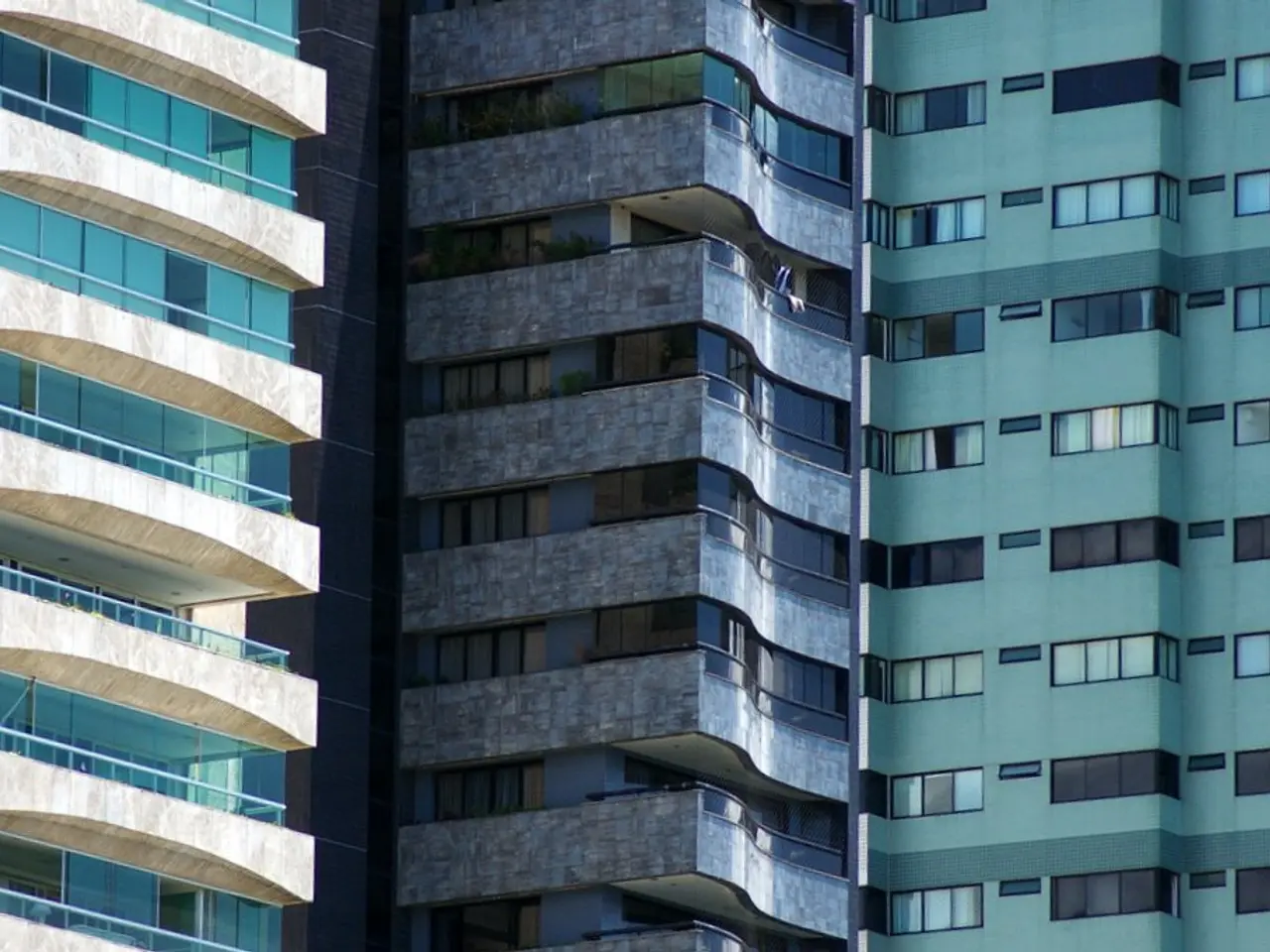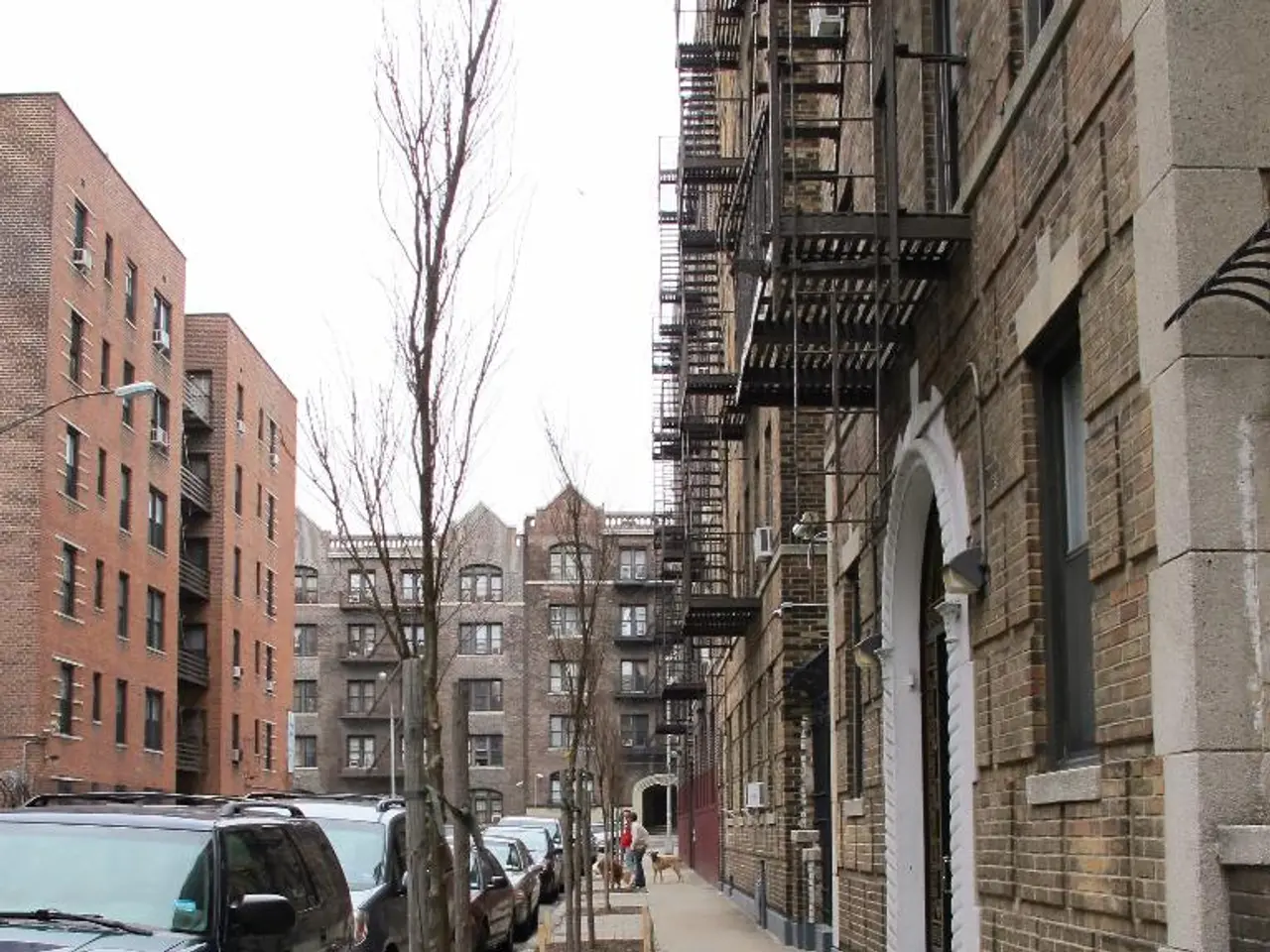Boom in New Apartments: Residential Construction Surges Ahead
Ongoing increase in apartmentconstructions - Unabated growth persists - Continued growth in residential construction observed
The boom in the challenged residential construction sector persists: In April, German authorities issued permits for the construction and renovation of a staggering 18,500 apartments, marking a 4.9% increase compared to the previous year, as revealed by the Federal Statistical Office. A hefty 15,000 of these apartments will be built in new buildings — a significant 5.1% growth compared to April 2024, according to the statisticians in Wiesbaden.
The current year-to-date tally of building permits in residential construction stands at 73,900. This denotes a 3.7% increase over the same period last year. However, the statisticians have noticed a plateau in multi-family homes while more single-family homes are under construction.
"Building Catalyst" to Fuel Apartment Construction
Affordable housing remains scant, particularly in metropolitan areas. More new apartments are a key objective for the new federal government. Previously, the SPD-led government had pledged the construction of 400,000 new apartments annually, but failed to deliver on this promise.
Last year, the number of permits dipped by nearly 17% to the lowest level since 2010, with authorities greenlighting a mere 215,900 new units.
To precipitate apartment construction, the federal cabinet will enact a law on Wednesday: The so-called "Building Catalyst" would grant municipalities the flexibility to expedite approval processes, deviating from established building plans.
Germany's housing construction industry grapples with a myriad of issues, including high construction costs and a shortage of skilled workers in the sector.
- Resurgence
- Building permit
- Germany
- Housing construction
- Federal government
- Wiesbaden
Insights:
The current standing of housing construction in Germany paints a tentative picture of improvement, although challenges persist, particularly with regards to new apartment construction and building permits.
Housing Construction and Building Permits Outlook
- The climate for housing construction companies has shown recent positive movement, as the ifo Business Climate index rose from -37.2 to -31.5 points in May 2025, signifying a more optimistic mindset among participants within the housing construction industry. Both current conditions and future expectations have shown signs of improvement, although the sector is still far from its normal state[1].
- Despite this upbeat sentiment, the order situation remains tight, with 51% of companies citing a lack of orders in May 2025, improving only slightly compared to the previous month. Cancellations of projects have decreased, showing a healthier trend, with 8.6% of companies reporting cancellations in May compared to 10.4% in April[1].
- Building permits, a vital indicator of future construction activity, increased by around 3.7% year-on-year in the January-April 2025 period, offering a sliver of hope for a recovery in housing supply[4].
- However, the construction of new apartments saw a steep decline by 14.4% in 2023, amounting to 251,900 units, indicating the sector's recent struggles[2].
Response from the Government to the Housing Crisis
- To address the housing shortage and incentivize housing construction, the German federal government has implemented measures aimed at streamlining residential projects. A bill was approved in mid-2025 to simplify approval processes and minimize bureaucratic hurdles that hamper housing construction[2][4].
- This "housing construction booster" initiative, as referred to by experts, holds essential sway in reversing the downward trend in new apartments and meeting future housing demand. The success of this policy hinges on effective implementation and the extent to which it can stimulate construction activity[1].
- Despite the government's actions, many construction companies still endorse unfavorable overall conditions, particularly in the public sector building construction area, which remains under duress, although some indicators have improved since the low points in 2024[3].
In essence, while Germany's housing construction sector shows indications of recovery with a gradual increase in building permits and improved business sentiment, new apartment construction remains under its preceding levels. The federal government is actively engaged in legislative measures to speed up residential construction and alleviate the housing shortage, but a full recovery is expected to be gradual and necessitate sustained effort[1][2][4].
- The "Building Catalyst" law, enacted by the federal government, aims to expedite approval processes for housing construction, providing a potential avenue for an increase in apartment construction, such as in Wiesbaden, as stated by statisticians.
- The resurgence of apartment construction in Germany is partially connected to the financial sector, particularly when considering investing in real estate and housing-market development due to the apartment shortage, especially in metropolitan areas, which is a key concern for the new federal government. Such investments could ultimately lead to increased vocational training opportunities in the housing construction industry, helping mitigate the current shortage of skilled workers.








